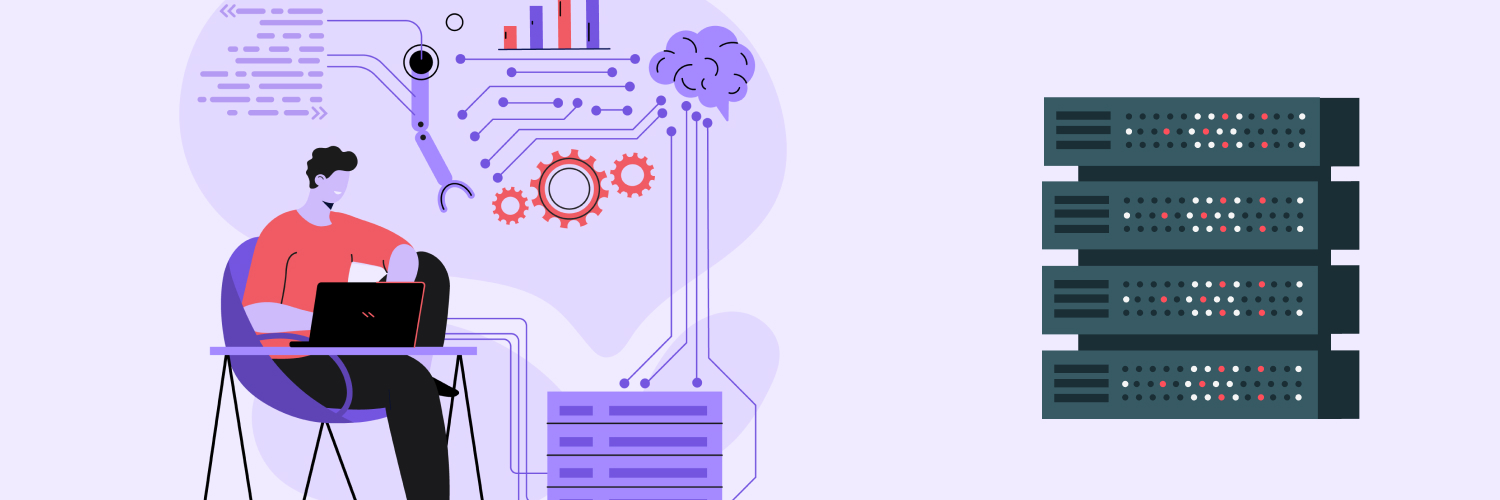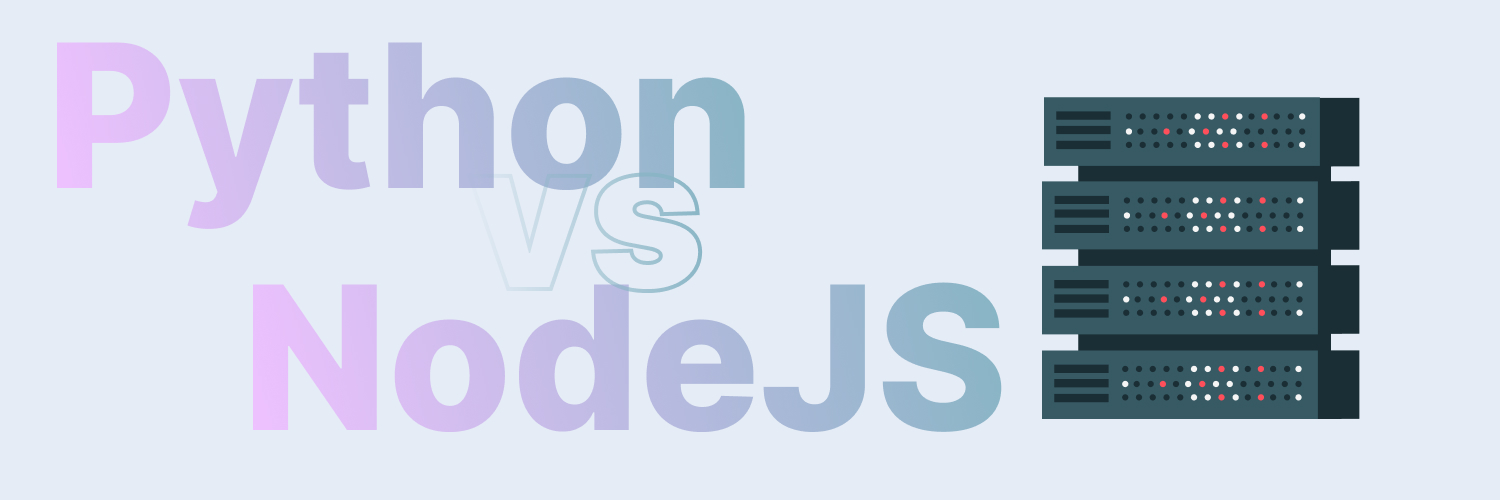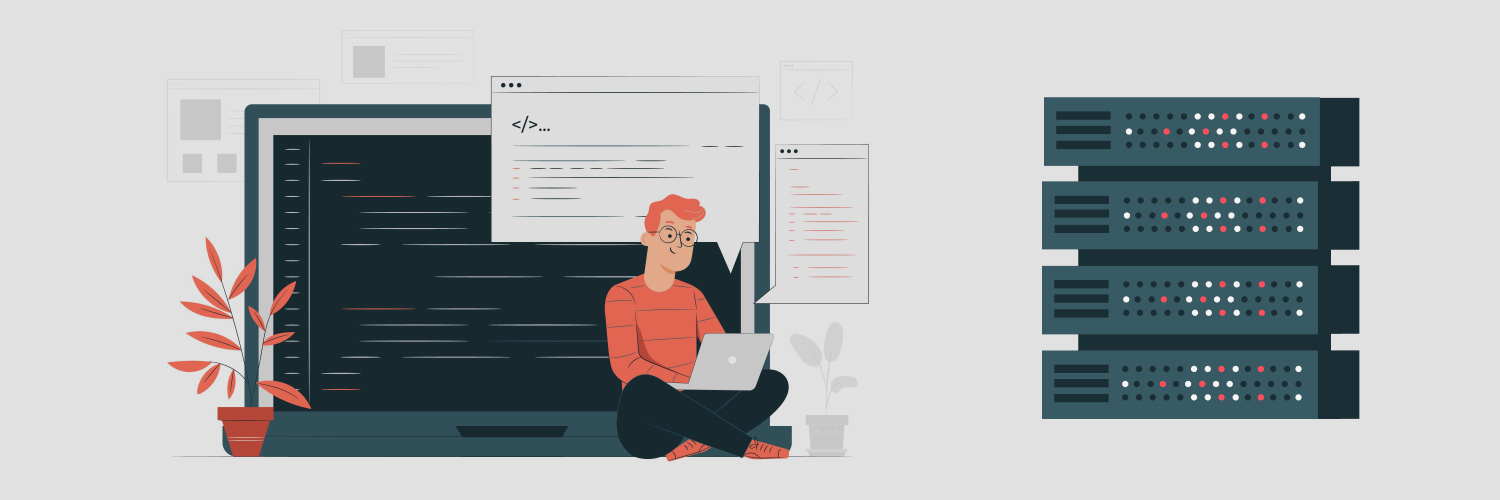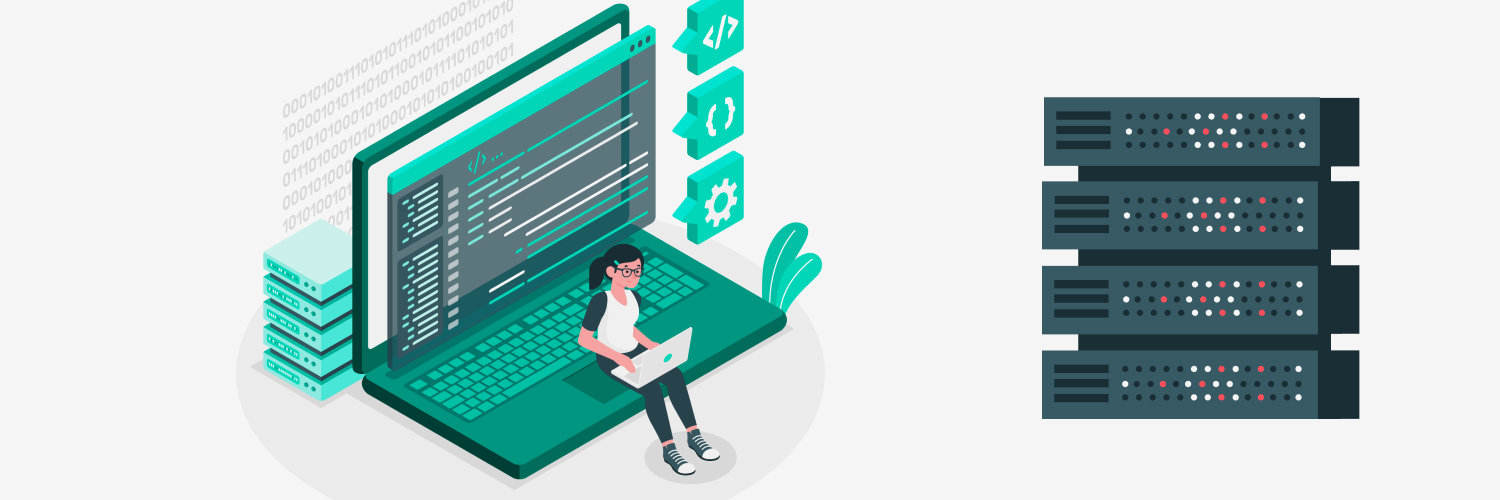Which One is Good For Web Scraping: Rust vs Go
When the time comes to set up web scraping, there are multiple routes to take. Most developers have favorite programming languages they hope to use, which often comes down to what they know well enough and enjoy using. Two of the options available to many are Rust and Go, both of which are high-quality, well-supported computer programming languages that can, in many ways, handle this task.
They are quite different. When it comes to web scraping, you need to consider Go vs. Rust performance as the ultimate decision-maker. To help you make your own decision, let’s break down these two programming languages and dive into which one is best for web scraping: Go vs. Rust.
What Is Rust Programming?

Rust is a popular programming language. It may not be the most well-known, but it provides a wide range of benefits to users, and that means it can be a good option for this task. Rust’s popularity comes from its ability to solve some of the most common problems that programmers deal with on a routine basis.
Rust is a fast, memory-efficient language. It is a static compiled language with a rich type system. It offers excellent benefits. For example, it is reliable for critical performance services and provides better memory and thread safety. As a result, it allows developers to debug while compiling.
There are other benefits to Rust as well. It prevents all crashes. It is excellent for documentation, and the compiler is user-friendly. The tools available are excellent, including a package manager and multi-editor. It has nice features like auto-completion and type inspection. It is a safe programming language, much like Python, Ruby, and Javascript. It is also a better option for most people than C and C++. Why is that? It is not possible to write the wrong parallel code. All of this plus it is a rather fast and efficient solution.
What makes it different, though?
With so many programming languages out there, Rust is a newer version, so why learn it? One of the biggest differentiating factors is that most of those other languages control a great deal of the hardware decisions. There are some safety risks in those situations. However, Rust provides developers with most of the control, which allows them to get the type and level of security they need and want.
Can you use Rust programming for web scraping?
Rust is definitely an option to consider for web scraping and should be in the Rust vs Go comparison. Some of the key benefits of choosing to use Rust for web scraping include:
- Native code: One of the reasons for this is that it compiles native code. As a result, it works well for managing large scale tasks that have a lot of data or numerous pages.
- Libraries: Also notable, Rust has excellent libraries, which makes it an outstanding tool for extracting information.
There are a few hurdles to manage. Rust is not easy to use compared to other languages. You will need to have some advanced techniques. The syntax is not as easy to learn as other languages, either. If you are brand new to developing a language, then you may find that using JavaScript or Python is easier to learn and lets you jump into it sooner.
What Is Go?

In the Go vs Rust comparison, it helps to have a good understanding of what Go is and how it works. Go, or Golang, is an open-source programming language. It was created by Google in 2007. It also has some key features that some developers benefit from, including being an open-source language, being easy to learn, and having built-in concurrency. The standard library is rather robust, and it has a large ecosystem of partners. Plenty of companies use Go, and because it is a Google-supported solution, it is well-trusted.
Go is often used for tasks such as web app development, cloud and networking solutions, and across most operating systems and frameworks. Some key details about Go: it is statically typed. It is explicit and modeled after the C programming language. It has a fast startup time, low runtime overhead, and the ability to work without a virtual machine. It is also commonly used to write microservices, among many other needs. Also important is that Go is used for concurrent programming. That is, you can execute multiple tasks at one time, and that includes working on them out of order or in partial order.
Can you use Go programming for web scraping?
Go is a popular choice for web scraping. Consider why you may want to choose Go for web scraping development:
- Concurrency: This is one of the most important components. Goroutines make it very good for handling concurrent tasks. When you are engaging in large-scale web scraping, having a tool that allows for concurrency is critical.
- Simplicity: Not only is Go’s syntax simple to use, it is still power and efficient. As a result, it is a good option for building scalable applications.
- Performance: Go is a compiled language. This often makes it a better choice for web scraping over other programing languages including Python.
There are a few factors to consider that may make Go less desirable. First, it has fewer dedicated web scraping libraries available to it when compared to other programming languages. That can be limiting in many situations. Also, while Go is simplistic to use, there is a learning curve involved. Specifically, if you have never worked with statically typed languages, it will take a bit more time to learn.
Breaking It down: Rust vs Go
When considering Go vs Rust performance and web scraping, note that both of the these languages are solid choices. If you enjoy programming, it is worth learning to use both options. Both of these programming languages are widely used and they are powerful. They are quite modern and certainly capable of handling most web scraping tasks.
Still, the Go vs Rust comparison has to happen. If you want to choose just one, which one are you going to go with?
Rust is a low level statically typed multi paradigm programming language. It has a strong safety and performance focus.
Go is an open-source programming language designed specifically to be easy to build and reliable. It is also quite reliable.
The answer then to Rust vs Golang? It really depends on what your web scraping needs and tasks are.
How Rust vs Go Are Similar

There are several specific factors that are about equal in this Rust language vs Go language comparison.
Memory safety
A common concern when it comes to developing any type of software is having bugs to manage. Bugs create security risks, and in today’s world, that is not okay. One of the most common reasons for these risks is accessing or using memory in an unsafe manner.
Both Go and Rust are excellent at reducing risk. They do this in different ways, though. For example, Go works as a “garbage collector” and finds problems long before they happen. The benefit of Rust is that it does not need such tools.
Speed of use
Another important comparison point where both reign supreme is speed. These languages are fast and they have compact executables. Rust and Go are compiled languages. This means that the program is translated directly to executable machine code. The bottom line? You can deploy your software in a single binary file. That means they are very fast solutions compared to other computer languages.
General purpose functionality
Another factor to think about with Rust vs Goland is how powerful and scalable they are. As general purpose programming languages, they are versatile enough to use for most needs and most modern types of software can be developed using them.
It is also beneficial that they have standard libraries and third party ecosystems to really make this a versatile, robust solution. A larger user base means there are people to help when there is a need for it.
Pragmatic programming
Both languages have features linked to functional and object oriented programming. Both are pragmatic languages, though, and that means they are designed to solve problems in the most appropriate manner.
Scaling development
Rust and Go offer features that make them a good choice specifically for web scraping because they are built to handle such tasks. Large codebases are no problem. Multiple users are no problem.
Also, both have standard code formatting tools. For Go: gofmt and for Rust: rustfmt which solves the problem of where you put brackets.
Rust Language Vs Go Language: Where They Differ

The best way to compare Rust vs Go for web scraping is to have a closer look at what makes these two languages so different from each other. It is because of these differences that you are likely to find out which of these programming languages is best suited for your activities, including web scraping. Their differences are what makes one better for some projects than others.
Here’s a look at the differences in Rust vs Go that ultimately are likely to make the decision of which tool to use for you.
Rust vs Go performance
As noted, both of these programming languages are fast to use. Rust is optimized for fast execution. Go is optimized for fast compilation. That’s a big difference.
When it comes to run time performance, Rust is certainly more consistent overall. That is because it does not use garbage collection. Go, on the flip side, has a garbage collector and it does reduce some of the work from your development process. It makes it easier to actually solve whatever the main problem is. You do not have to spend a lot of time trying to learn the fine details of memory management.
So, when it comes to performance, Rust tends to be a better choice in situations where you need fast execution. This is the most likely situation when you are developing operating system kernels or game programming. It is also beneficial for real-time control systems.
Simple to use
We already discussed that both languages are worthy of learning and simple to use overall. However, there are differences between Rust vs Go that you need to consider in this area.
Go is a small language on purpose. There are very few actual keywords, syntax, and language constructs. If you put some time into it, you can learn the basics of Go and then get rather efficient at using it quickly. As a result, Go is the better option for short-timescale projects. If you do not have a lot of time to get the task done, you need to do it quickly and simply. If you are bringing in new team members or working with those who are inexperienced, Go offers the advantage.
However, when considering Rust vs Go, Go is simple, and that means that in some situations, it may not be the right choice. Because Go has such a simplistic syntax, you may need to write additional code when there are more complex problems at hand. Rust, by contrast, does more of the heavy lifting in this area, helping you to move through the process faster. Go would not be ideal for program developers who like to use expressive language or want to find numerous ways to solve problems.
Go vs Rust features
Another way that Go vs. Rust performance differences come down to the actual features. If you are comparing both of these products, Rust has virtually every feature found in most other programming languages. It is an expressive language, and with that comes more power. In other words, Rust gives you more ways to do more things.
Let’s say you are moving to Rust from another programming language. If that is the case, there are likely Rust equivalents available for most of the features you are used to using, and that can cut into the amount of time you have to spend on this process. Rust is definitely a benefit when you have a very large project that you need to migrate from C++ or Java.
On the flip side, you have all of that complexity to navigate, and when it is not needed, it can actually make solving your problems far more complex. Rust requires you to think about problems I various ways. When you consider this, if you are going to use software developers to create tools in Rust, you are likely to pay ore for their expertise and insight. With Go, entry level professionals can get their start and start to become rather efficient in a short amount of time.
Rust vs Go Concurrency
Concurrent programming is a big factor in this Rust versus Go comparison. Go has built-in features to allow for concurrent programming. As noted, that includes goroutines, which are a lightweight version of a thread. It also includes channels, which are a safe method for communicating data between concurrent tasks.
When you are creating high scale concurrent applications, then, you definitely will benefit from using Go. That includes projects like web servers.
Rust vs Go and safety
Always important to consider when choosing a programming language is how safe the solution is. When you think about safety, know that Rust was designed to ensure that you cannot do something that is unsafe that you do not want to do. For example, you cannot overwrite a shared variable. Instead, the compiler will require you to be explicit in how you share data between various parts of the program. As a result of this, the compiler often is able to detect common bugs and mistakes long before they become a problem.
Rust programmers do struggle in some ways. You must design your software to meet these requirements, and when you cannot or do not want to, it is hard to create the type of code that you are looking for easily. The bottom line is that Rust code means you need to rethink your design if what you are trying to create is not “right” according to the system. That could slow things down.
Rust vs Go Scale
As we mentioned, both programs offer benefits in this area. Go was designed to scale. It can help you easily scale your projects and team. That’s more possible because of its minimalistic design. That simple design makes it more uniform. It also has a very clearly defined standard style. You can understand codebase that is new easily, in most situations.
When you consider this objective, then, if you are creating a project that is going to scale, Go is the better choice because it works better over bigger organizations. This provides you with better and faster build times. It also allows for rapid testing. And, ultimately, all of these factors lead to rapid deployment.
Garbage Collection Go vs Rust
We also need to consider the difference between Rust vs Go when it comes to garbage collection. Garbage collection is a common feature and allows the language to make it quick and easy to develop reliable and efficient programs. This is the most important factor for many people, but not for everyone.
Garbage collection brings with it overhead and pauses in the process. That can mean your program behaves in an unpredictable way once you reach run time. For many developers, this type of inconsistency really is not a good thing.
Rust, a language in which the programmer must make it explicitly accurate from the start, is a better choice for real-time application development.
What About for Web Scraping: Rust vs Go

Rust versus Go for web scraping comes down to a few key factors.
Concurrency.
If you are doing large-scale web scraping activities, you need to ensure the language you use can handle that work. It also needs to be able to work well for concurrent tasks. Go works well for this. If your project is going to be very large, simplicity will likely be a critical factor.
Memory safe.
Rust for web scraping is beneficial because it is memory-safe. This means that the software is better protected from bugs and other security risks, which can be a very important factor when creating a web scraping tool.
Note that while both Rust and Go can offer safe environments, you should employ every strategy possible to minimize risk when web scraping. For that reason, it is often a benefit to use proxies for web scraping. This will provide you with better protection for your IP address, as the proxy works as a middleman between your IP address and the server.
Go vs Rust performance.
Both languages require some education to be efficient. Once you get used to Go, though, it is very effective and performs very well. Rust is good for web scraping in that it uses native code and can handle large tasks. However, there is a learning curve you need to overcome to really make the most of this process.
Finding the Right Solution for Web Scraping for Your Next Project
No matter what solution you end up using—Rust vs. Go or another language—it helps to know that there is support available to you through your web scraping path. At Rayobyte, you have the comprehensive, free help you need to make the most of your web scraping and program language development.
If you need help with making those decisions, check out Proxy Pilot, a software program that provides you with data-driven support and precision so you can use proxies to get the most out of any project you are developing. Contact us to learn more.
The information contained within this article, including information posted by official staff, guest-submitted material, message board postings, or other third-party material is presented solely for the purposes of education and furtherance of the knowledge of the reader. All trademarks used in this publication are hereby acknowledged as the property of their respective owners.






